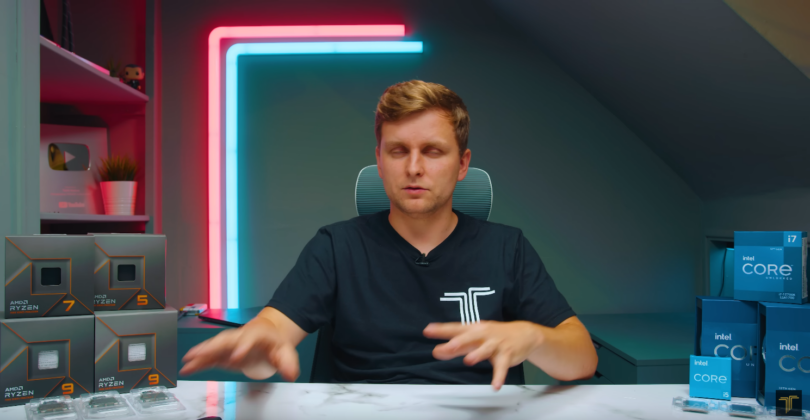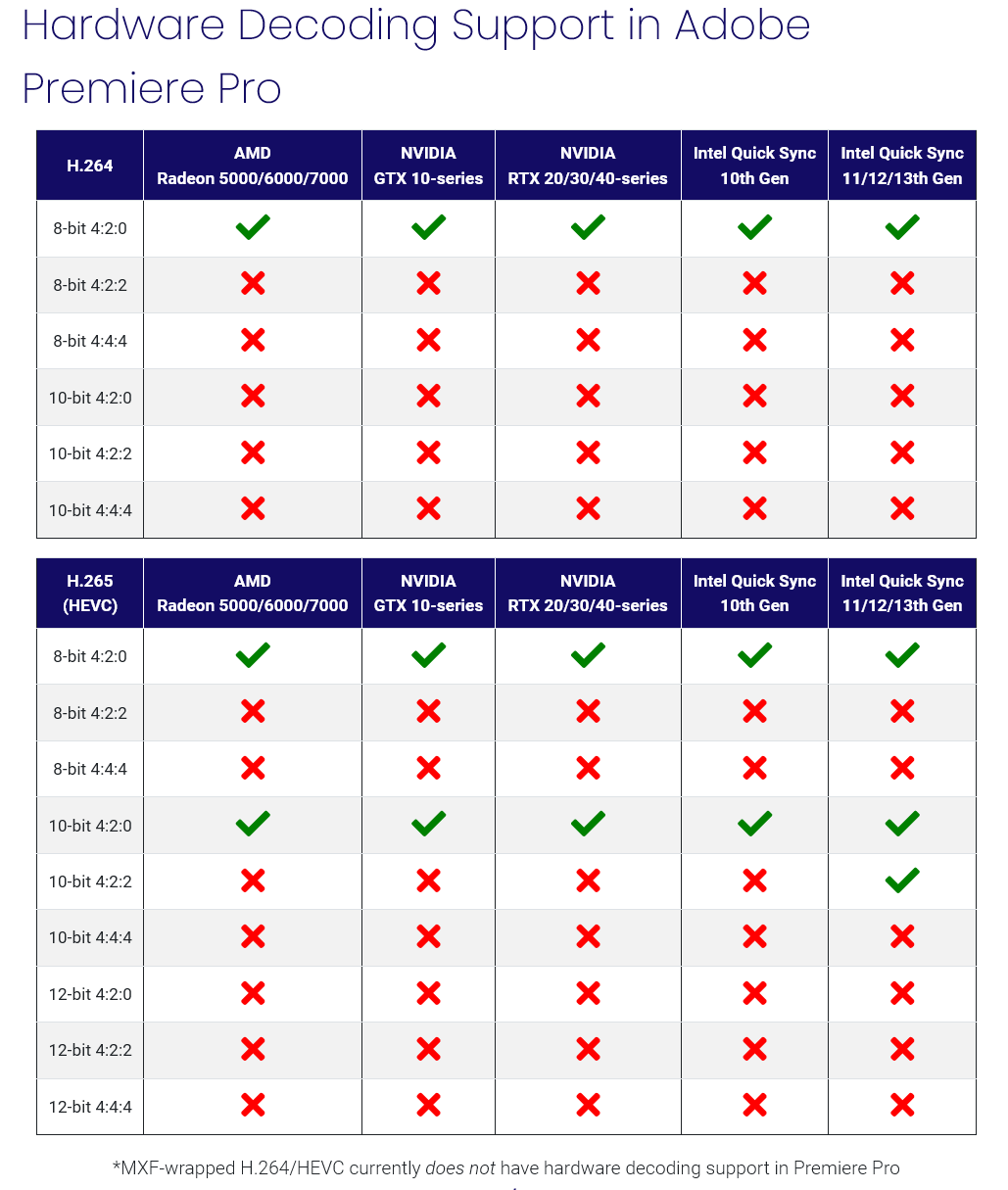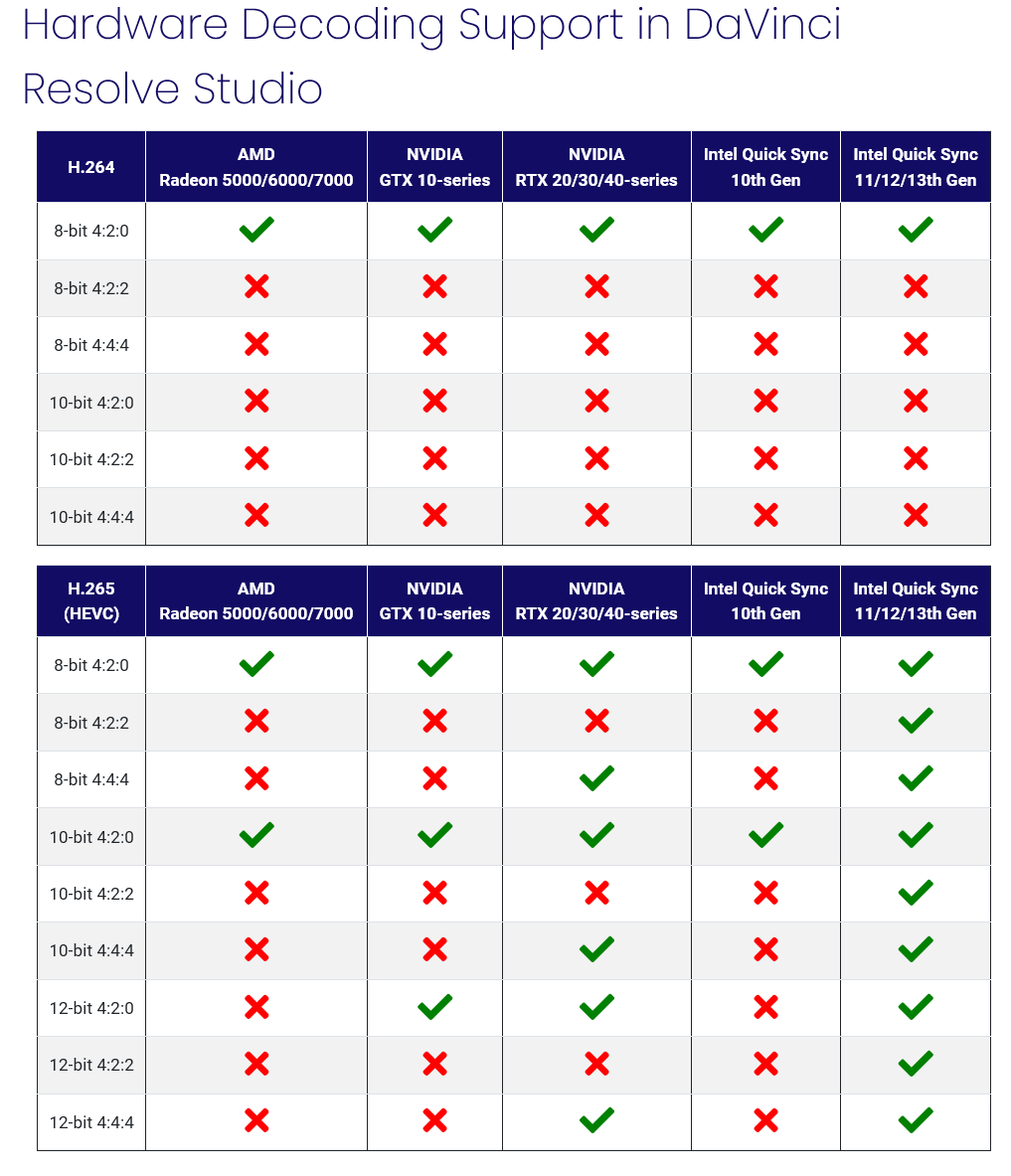
Tech Notice, seen above using the Force to benchmark CPUs, has tested the latest Ryzen and Core CPUs in two popular video editing applications; Premier Pro and DaVinci Resolve. Intel has an advantage in Premier Pro as it can also use the iGPU for faster editing leading some very interesting results for the i5-13600K vs the Ryzen 9 7900 and 7950X. As you would expect, the i9-13900K is the fastest for Premier, but by a surprisingly small amount compared to the price you pay for the premium CPU.
Check out the video below and make sure you give him a subscribe.
Personal take: Tech Notice has put a very, very good argument for focusing on the i5-13600K if you’re editing in an Adobe workflow, as long as you’re not using RAW footage where the premium Ryzen processors come back swinging. I recently built a mid-range SFF PC using parts that were on sale as a secondary editing station for some relatively light video editing. This included an Intel i5-12600K which has provided impressive performance in my work flow even compared to my 5950X main rig. I built it in a Raw S1 case, not known for good temps, and it’s been functioning well with the Noctua Ghost Cooler and 120mm fan on the top. The 13600K pulls a bit more power, but also offers a nice performance bump over the 12600K. It’s a good sweet spot that a lot of medium sized air coolers can still cool if the case has good ventilation.
This actually become even more evident in DaVinci Resolve. I’ve avoided speaking about it because I simply have no experience in it, so I’m going to defer to Puget Systems who have done extensive testing, and have put together one of the industry standard editing benchmarks called Puget Bench. Put very simply, DaVinci Resolve supports substantially more hardware acceleration options on the Intel iGPU via Quick Sync than on either AMD or Nvidia combined.
Take a look at the comparison charts that Puget Systems put together in their testing. The original articles can be found HERE and HERE.
If you’re limited to an APU or CPU with iGPU only scenario, and you have to do editing on it in DaVinci, the choice is pretty clear. The waters get muddy when you look at the extended scores where Ryzen claws back performance in the Extended Puget Bench for DaVinci Resolve, but looses in the Standard Puget Bench for DaVinci Resolve.
There is one issue that wasn’t addressed here and that is power usage which is critical to SFF builds. I’m going to spin that off into a separate article though, but right now none of these CPUs can get under 100 watts at full performance. It doesn’t mean you can’t use them in smaller cases on SFF coolers, but there are sacrifices to be made. Look for that in our Articles section this week.


